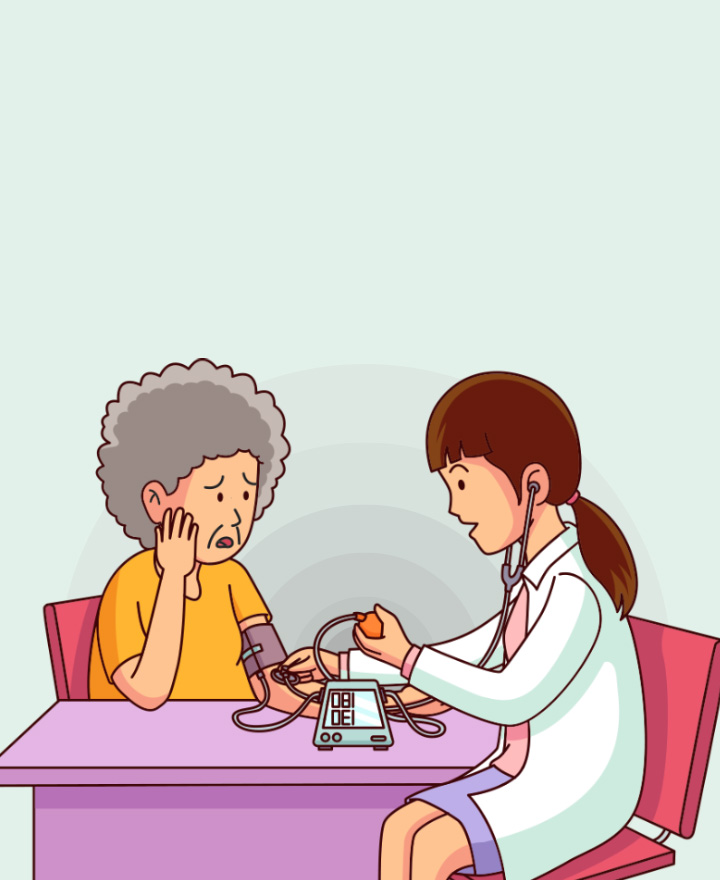

What Is Anal Psoriasis and How Is It Treated?
Anal psoriasis is a chronic inflammatory skin condition that affects the area around the anus. It is a common condition that affects millions of people worldwide. Although it is not infectious or sexually transmitted, it can be particularly uncomfortable due to the sensitivity of the area and frequent friction or moisture exposure. However, with the right treatment, anal psoriasis can be effectively managed. In this blog, we will learn more about anal psoriasis, symptoms to watch out for and how this condition can be treated.
What Is Anal Psoriasis?
As the name suggests, anal psoriasis primarily affects the skin in the area around the anus. It is a type of inverse psoriasis that affects the skin around the anus. It’s a chronic autoimmune condition that causes red, inflamed, itchy, and sometimes painful patches of skin in that sensitive area. However, symptoms may also appear in other nearby areas, such as the vulva, scrotum and penis. As the condition progresses, it can extend to the buttocks, thighs, groin and surrounding regions. In some individuals, anal psoriasis may occur alone, but it is more commonly seen alongside psoriasis on other parts of the body, such as the scalp, elbows or knees.
Anal psoriasis, a form of genital psoriasis, usually develops in people who have already been diagnosed with psoriasis. In fact, more than 60% of individuals with psoriasis also develop genital psoriasis. If you have psoriasis and notice redness, itching, or irritation around the anus, it could indicate the spread of the disease to this region.
Key Characteristics
Anal psoriasis typically presents with the following symptoms in the anal region:
• Dry, sensitive skin
• Skin appears red and shiny around the anus
• Pain or discomfort
• Itching
• Burning sensation
Causes and Risk Factors
Psoriasis is an autoimmune condition. The exact reason why psoriasis affects specific areas, such as the anus or genitals, is still not fully understood. However, genes seem to play a role. Research indicates that approximately one in three individuals with psoriasis has a family member who also has the condition. External and environmental factors might also play a role. These include:
• Skin infections or injuries, especially in the genital areas
• Obesity
• Smoking and drinking
• Physical and mental stress
• Extreme cold conditions
• Certain medications like beta-blockers, lithium, ACE inhibitors and TNF inhibitors
How is Anal Psoriasis Treated?
The following treatment methodologies help reduce flare-ups and manage anal psoriasis conditions more effectively. These methodologies are broadly classified into four types: topical treatments, oral treatments, injectables and home-care tips.
A) Topical Treatments
Applying medicated creams or ointments, as prescribed by a doctor, can help relieve the discomfort, pain and inflammation caused by genital or anal psoriasis. Commonly recommended topical treatments include:
• Mild or potent corticosteroid creams, based on the severity
• Calcipotriene cream
• Pimecrolimus cream
• Tacrolimus ointment
• Coal tar (mild variety only, based on a doctor’s recommendation)
• Vitama
• Zoryve
B) Oral Treatments
Some of the OTC and prescription medicines to treat anal psoriasis are:
• Corticosteroids
• Immunosuppressants
• D-MARDs (disease-modifying antirheumatic drugs)
• PDE4 (phosphodiesterase 4) inhibitors
• Oral retinoids
• TYK2 (tyrosine kinase 2) medications
C) Injectables
Your dermatologist may inject corticosteroids directly into the affected area or administer an intramuscular injection if the rash is widespread. Psoriasis is often managed using biologic disease-modifying antirheumatic drugs (DMARDs), which target specific components of the immune system. The main types of biologics used include:
• Interleukin-17 Inhibitors
• Anti-tumour necrosis factor-alpha (TNF-alpha) inhibitors
• T-cell inhibitors
Home-Care Tips
Here are some simple at-home strategies that may help manage anal psoriasis more effectively:
• Wearing loose and comfortable clothes
• Maintaining proper toilet hygiene
• Eating a high-fibre diet
• Washing the genital areas properly
• Applying natural and therapeutic oils on the skin, like olive and coconut oil
• Keeping stress levels low
Conclusion
Anal psoriasis can be effectively managed with early diagnosis and the right medical treatment. Alongside prescribed therapies, following good hygiene practices at home can help reduce pain, itching and discomfort. Since treatment can involve ongoing costs, such as topical creams, oral medication or injectable therapies, it’s a good idea to consider a health insurance policy that covers chronic skin conditions like genital or anal psoriasis. Having the right cover can ease the financial burden and ensure you get timely, uninterrupted care.
One of the important components of our overall wellness is also being financially secured. Healthcare emergencies can happen any time, but a good health insurance policy can protect you from such uncertain situations. To know more about Wellness and other health related tips, visit the wellness corner.
Disclaimer: This blog provides general information and discussions about health and related subjects. The information and other content provided in this blog, website or any linked materials are not intended and should not be considered or used as a substitute for medical advice, diagnosis, or treatment. Kindly contact your doctor before starting a new medicine or health regime.
Related Articles
Fisher Disease (Anal Fissures): Types, Causes, Symptoms & Treatment
Haemorrhoids: Symptoms, Causes, & Treatment
What are the symptoms of Fistula?
Everything You Need to Know About Gonorrhoea
Reasons Behind Chlamydia Infection
Published on July 11, 2025















 Health Insurance
Health Insurance  Travel Insurance
Travel Insurance  Car Insurance
Car Insurance  Cyber Insurance
Cyber Insurance  Critical Illness Insurance
Critical Illness Insurance
 Pet Insurance
Pet Insurance
 Bike/Two Wheeler Insurance
Bike/Two Wheeler Insurance  Home Insurance
Home Insurance  Third Party Vehicle Ins.
Third Party Vehicle Ins.  Tractor Insurance
Tractor Insurance  Goods Carrying Vehicle Ins.
Goods Carrying Vehicle Ins.  Passenger Carrying Vehicle Ins.
Passenger Carrying Vehicle Ins.  Compulsory Personal Accident Insurance
Compulsory Personal Accident Insurance  Travel Insurance
Travel Insurance  Rural
Rural